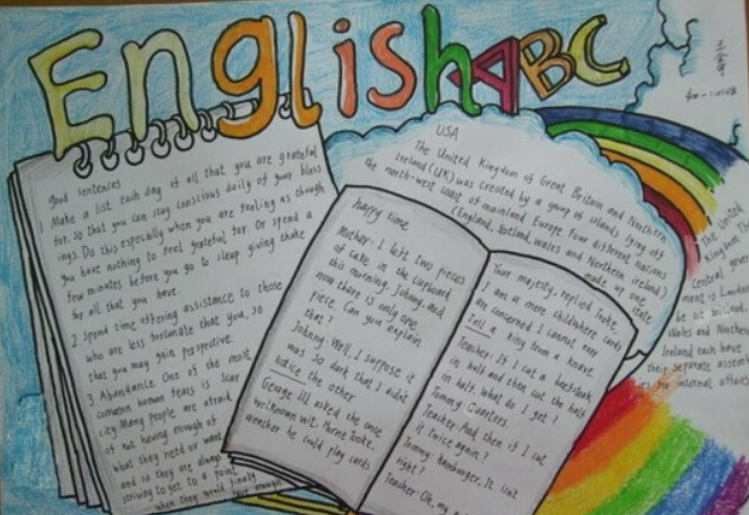conversion构词法是什么?
的有关信息介绍如下:conversion构词法是转化法。
英语构词法中把一种词性用作另一种词性而词形不变的方法叫做转换法。在物理里指把难于测出的物理量转化为易于测出的物理量的实验方法叫转化法。
举例:
(1)名词 动词: hand:手 传递 water:水 浇水 place:地方 放置 。
land:土地 着陆 design:图案 设计 picture:图画 想像。
(2)形容词 动词: empty空的 倒空 better:较好的 改善。
back:后面的 支持 。

英语中的构词法主要有三种,即转化法、合成法和派生法。
一. 转化法(conversion)
在英语中,一个单词由一种词性转化为另一种或几种词性而词形不变的方法叫做转化法。
1、 动词转化为名词
Let me have a try.
让我试试。
They are only allowed to sell soft drinks at school.
在学校里只准许他们出售不含酒精的饮料。
2. 名词转化为动词
He shouldered his way through the crowd.
他用肩膀推开人群前进。
The smell from the kitchen made his mouth water.
从厨房传来的气味使他流口水。
3. 形容词转化为动词
We will try our best to better our living conditions.
我们要尽力改善我们的生活状况。
They tried to perfect the working conditions.
他们努力改善工作条件。
4. 形容词转化为名词
He didn’t know the difference between right and wrong.
他不辨是非。
The old in our village are living a happy life.
我们村的老年人过着幸福的生活。
5. 形容词转化为副词
How long have you lived there?
你在那儿住多久了?
6. 个别词在一定场合中可转化为名词
Warm clothes are a must in the mountains.
穿暖和的衣服到山区去是必须的。
Life is full of ups and downs.
人生有得意时也有失意时。
His argument contains too many ifs and buts.
他的辩论中含有太多的“如果”和“但是”。
二. 合成法(composition)
由两个或两个以上的单词连在一起合成一个新词,这种构词法叫做合成法,合成的词叫做合成词(compounds)。合成词的写法由习惯决定,可以写在一起,也可以用连词符号连接。
1. 合成名词
名词/代词+名词
newspaper blood-test she-wolf
动词+名词
typewriter pickpocket daybreak
形容词+名词
greenhouse highway
副词+名词
overcoat outside
名词+v.-ing/v.-ing +名词
handwriting reading-room freezing-point
动词+副词/ 副词+ 动词
breakthrough get-together outbreak outcome
名词+介词+名词
sister-in-law editor-in-chief
2. 合成形容词
名词+形容词/形容词+名词
world-famous duty-free large-scale long- term
副词+形容词
over-anxious evergreen
名词+过去分词
man-made sun-burnt
名词+现在分词
peace-loving English-speaking
形容词+现在分词
good-looking easy-going
副词+过去分词
well-informed widespread
副词+现在分词
hardworking far-reaching
形容词+名词+ed
warm-hearted absent-minded
数词+名词+ed
three-legged ten-storied
数词+名词
one-way five–star
数词+名词+形容词
ten-year-old 800-meter-long
名词+to+名词
face –to-face door - to -door
3. 合成动词
名词+动词
baby-sit sleepwalk
副词+动词
outnumber underestimate overwork
形容词+动词
whitewash
4. 合成副词
形容词+名词
meanwhile anyway
形容词+副词
everywhere anyhow
副词+副词
however
介词+名词
beforehand overhead
介词+副词
forever
5. 合成代词
代词宾格+self/selves
herself themselves
物主代词+self/selves
myself yourselves
形容词+名词
anything nothing
6. 合成介词
副词+名词
inside outside
介词+副词
without within
副词+介词
into
三. 派生法
由一个词加上前缀或后缀构成一个与原单词意义相近或截然相反的新词叫做派生法。
1. 前缀
除少数前缀外,前缀一般改变单词的意义,但不改变单词的词性。
(1)表示否定意义的前缀
un-unhappy unfinished undress
dis- disagree disbelieve
in[il-(在字母l前),im-(在字母m,b,p前),ir(在字母r前)]-inaccurate illegal impolite imbalance irregular
mis-misbehave mislead mistake
non-nonstop nonsmoker
(2)表示其他意义的前缀
en-“使……” enrich enlarge encourage
inter-“相互” international intercontinental
re-“再,又,重” rethink retell recycle
tele-“远程的” telescope telephone telegraph
auto-“自动的” automatic automobile
co-“共同” coworker cooperate coexist
anti-“反对,抵抗” antiwar antifreeze antinuclear
multi-“多” multistory multicultural multicolor
bi-“双,二”bicycle bilingual bilateral
micro-“极小的,微小的” microwave microcomputer
over-“太多,过分” overwork overdo overestimate
self-“自己,本身” self-centered self-confident self-control
under-“在……下面,……下的,不足的” underline, underground, underestimate, underrate
2. 后缀
(1)形容词后缀
-able “可……的,具有……的” acceptable drinkable knowledgeable reasonable
-al“与……有关的” physical, magical, political
-an“属于某地方的人” American African
-ern“方向” southern, northern, eastern
-ful/ less“(没)有……的” helpful, useful, homeless, hopeless
-ish“如……的;有……特征的” foolish childish selfish
-ive“有……倾向的” active attractive expensive
-en“由……制成的” golden wooden woolen
-ous“有(性质)的” famous, dangerous, poisonous
-ly “有……性质的” friendly yearly daily
-y“构成形容词” noisy dusty cloudy
(2)名词后缀
-er / or“表人或用具” farmer, baker, visitor, professor, cooker, container
-ese“某国(人)的” Chinese, Japanese
-ian“某国、某地人;精通……的人” musician, Asian, Russian, technician
-ist“某种主义或职业者” physicist, scientist, communist,socialist
-ess“表女性,雌性” hostess, actress, princess
-ment“行为或其状态” government, movement, achievement
-ness“性质,状态” illness, sadness, carelessness
-tion“动作,过程,结果” invention, organization, translation
-ance/ ence“抽象;行为、性质、状态” importance, appearance, absence, existence
-th“性质、情况” depth, warmth, truth
-ful“(满的)量” handful, spoonful, mouthful
-(a)bility“抽象、性质、状态” possibility, disability



